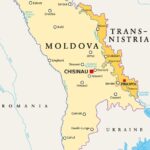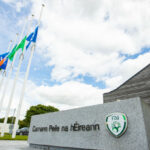Health
World leaders show strong support for political declaration on noncommunicable diseases and mental health
Read more on post.
World leaders have expressed overwhelming support for the text of the first United Nations global political declaration on responding to noncommunicable diseases (NCDs) and mental health in an integrated manner. The declaration, negotiated during a five-month intergovernmental process, will be considered at the 80th session of the General Assembly for final approval in October 2025.
The heads of state and government, and ministers of health, met yesterday at the fourth United Nations General Assembly High-level Meeting on noncommunicable diseases and mental health.
NCDs, including cardiovascular and lung diseases, cancer and diabetes, are the leading causes of death worldwide, claiming at least 43 million lives in 2021, including 18 million people aged under 70 years. Four in five (82%) of these premature deaths occur in low- and middle-income countries. Mental health conditions affect over a billion people globally.
NCDs are increasing in every country, affecting every community, making them urgent issues for public health, productivity and sustainable economic growth.
The political declaration under consideration is titled “Equity and Integration: Transforming Lives and Livelihoods through leadership and action on noncommunicable diseases and the promotion of mental health and well-being”.
The declaration sets global targets to be achieved by 2030, including 150 million fewer tobacco users; 150 million more people with hypertension under control; and 150 million more people with access to mental health care.
It integrates lessons from the COVID-19 pandemic and responds to new global challenges, by broadening the set of NCD areas to include oral health, lung health, childhood cancer, liver disease, kidney disease, and rare diseases; expanding environmental determinants, including air pollution, clean cooking, lead exposure, and hazardous chemicals; and recognizing the evolving risk of digital harms from social media exposure, excessive screen time, harmful content, and the risks of mis- and disinformation.
It also contains a sharper regulatory focus on e-cigarettes, novel tobacco products, unhealthy food marketing to children, front-of-pack labeling, and the elimination of trans fats. Its commitments include the experiences and the needs of people living with NCDs and mental health conditions, climate-vulnerable populations, Small Island Developing States (SIDS), and those in humanitarian settings.
Health
Recommendations announced for influenza vaccine composition for the 2026 southern hemisphere influenza season
Read more on post.
The World Health Organization (WHO) today announced its recommendations for the viral composition of influenza vaccines for use in the 2026 influenza season in the southern hemisphere. The announcement was made at an Information Meeting after a 4-day Consultation on the Composition of Influenza Virus Vaccines.
Given the constantly evolving nature of influenza viruses, regular updates to vaccine composition are essential to ensure their effectiveness and to protect public health worldwide.
WHO convenes these consultations twice annually – once for the southern hemisphere and once for the northern hemisphere, bringing together an advisory group of experts from WHO Collaborating Centres and Essential Regulatory Laboratories. The group reviews surveillance and other data provided by the WHO Global Influenza Surveillance and Response System (GISRS) and collaborators to inform its recommendations.
WHO’s recommendations serve as the basis for national and regional regulatory authorities, pharmaceutical manufacturers, and other stakeholders to develop, produce, and license influenza vaccines for the upcoming season.
WHO recommends that trivalent vaccines for use in the 2026 southern hemisphere influenza season contain the following:
Egg-based vaccines
- an A/Missouri/11/2025 (H1N1)pdm09-like virus;
- an A/Singapore/GP20238/2024 (H3N2)-like virus; and
- a B/Austria/1359417/2021 (B/Victoria lineage)-like virus.
Cell culture-, recombinant protein- or nucleic acid-based vaccines
- an A/Missouri/11/2025 (H1N1)pdm09-like virus;
- an A/Sydney/1359/2024 (H3N2)-like virus; and
- a B/Austria/1359417/2021 (B/Victoria lineage)-like virus
Consistent with the four previous WHO recommendations since September 2023, it remains the opinion of the WHO influenza vaccine composition advisory committee that the inclusion of a B/Yamagata lineage antigen is no longer warranted.
Quadrivalent vaccines, where the transition to trivalent vaccines is not yet complete, contain a 4th component – a B/Yamagata lineage virus (B/Phuket/3073/2013-like virus).
There will no longer be updated recommendations for the B/Yamagata lineage component.
WHO has also updated recommendations for the development of new candidate vaccine viruses for zoonotic influenza, with a view on pandemic preparedness.
-
Politics4 days ago
European Parliament snubs Orbán with vote to shield Italian MEP from Hungarian arrest
-
Culture3 weeks ago
Life, loss, fame & family – the IFI Documentary Festival in focus
-
Culture2 months ago
Fatal, flashy and indecent – the movies of Adrian Lyne revisited
-
Environment1 week ago
Key oceans treaty crosses threshold to come into force
-
Health5 days ago
EU renews support for WHO’s Universal Health Coverage Partnership
-
Culture4 days ago
Twilight at 20: the many afterlives of Stephenie Meyer’s vampires
-
Culture1 week ago
Farewell, Sundance – how Robert Redford changed cinema forever
-
Culture4 weeks ago
What is KPop Demon Hunters, and why is everyone talking about it?















































